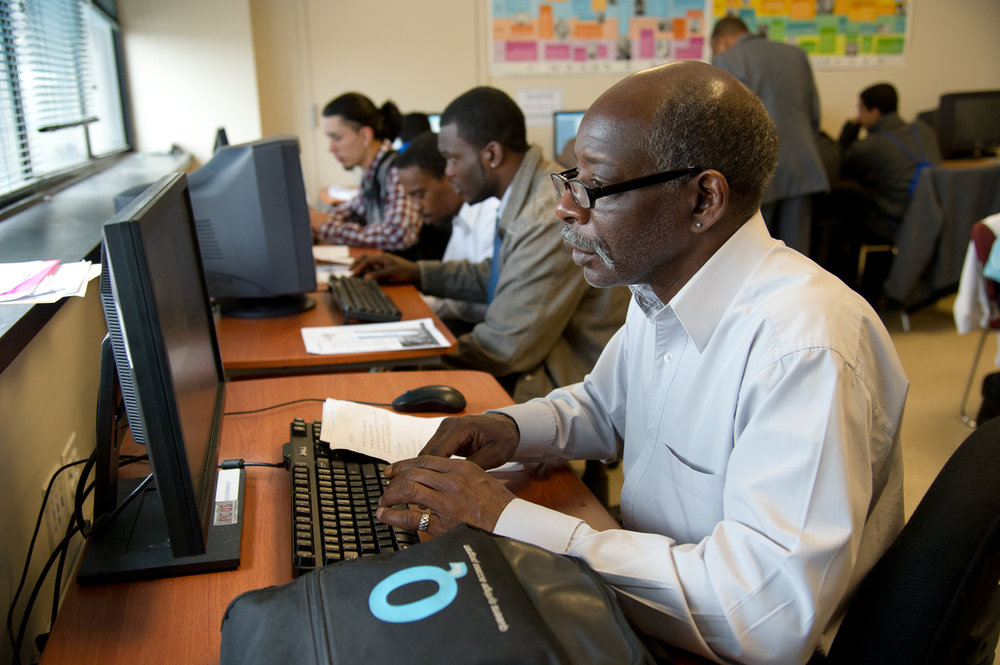Digital training for the formerly incarcerated
The Fortune Society is joining the Grow with Google Career Readiness for Reentry program, an initiative to provide free digital skills and job readiness training to formerly incarcerated individuals.
The program is in partnership with five nonprofits that have successfully developed and delivered high-quality job training to returning citizens, including Fortune Society, The Last Mile, Center for Employment Opportunities (CEO), Defy Ventures, and The Ladies of Hope Ministries.
The program’s training will focus on fundamental digital skills, such as how to apply for jobs online and create a resume, along with more advanced topics including entrepreneurship and business budgeting. In total, the program will train 10,000 participants this year.
“We have a job readiness program that is three weeks in length, so when people are either coming to us after serving time in jail or prison we put them through this training program,” said Ronald F. Day, vice president of Programs at Fortune Society. “We help them with job search, proper interviewing skills and attire, how to fill out job applications and we connect them with some of the employers we work with.”
Fortune Society has funding to provide fellowship opportunities to serve as transitional work for a program of ten weeks for 21 hours a week at a minimum wage and connect them with their long list of employers that work with the nonprofit.
Headquartered in Long Island City and founded in 1967, Fortune Society is one of the nation’s leading nonprofit reentry service and advocacy organizations, serving 9,000 justice-involved individuals in New York City every year.
“We don’t just do advocacy now, we provide alternatives to incarceration,” said Day. “We work with people who have been arrested for felony charges and try to reduce the chances that they end up with a prison sentence.”
Each year, 600,000 Americans transition out of incarceration and face barriers to reentering the workforce. The unemployment rate for returning citizens is five times the national average, and returning citizens who are Black experience an even higher jobless rate.
The increasingly digital nature of work presents another challenge to workforce reentry, making the employment process difficult for those who lost access to technology while in prison.
“Lack of access to digital skills training and job coaching puts formerly incarcerated individuals at a severe disadvantage when trying to reenter the workforce and increase their economic potential,” said Malika Saada Saar, Global Head of Human Rights at YouTube, a subsidiary of Google. “We are thrilled to work alongside program partners who have demonstrated true expertise and leadership in supporting successful reentry through digital skills training to men and women, mothers and fathers, impacted by incarceration.”
The program is part of Google’s racial equity commitments and builds on the company’s ongoing investments in criminal justice reform. Since 2015, Google has given more than $40 million to nonprofits advancing criminal justice reform, and $60 million to organizations working to expand access to hands-on computer science learning.
Any nonprofit organization offering training to the reentry population can join the Grow with Google Partner Program and access resources, workshop materials and hands-on help free of cost.





